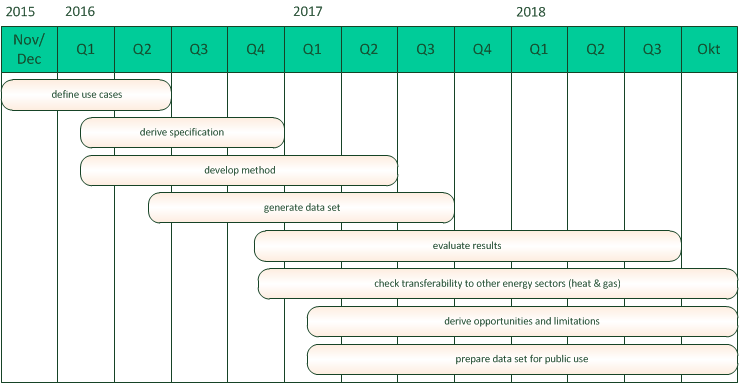The SimBench Project
Developments of solutions and algorithms to improve today’s grid analysis, grid planning and grid operation management often depend on confidential network operator data. Due to the confidentiality of this data, the results based on this data are not completely publishable, especially not reproducible. In addition, network-specific solutions of non-public network data create a lack of comparability and transparency.
The main goal of the SimBench project is the development of a benchmark data set for solutions of predefined use cases in the field of grid analysis, grid planning and grid operation management. By publishing the benchmark data set as open-source product, the development of new methods and solutions independent from non-publicly available individual network data sets is ensured. For a high amount of use cases a complete data set is provided. This means that the need for additional assumptions for the development of solutions is to be minimized and thus comparability of solutions may succeed because of the same data base. By evaluating the applicability of the SimBench data set as well as comparing it to real grid data, the relevance of the data set is given. The underlying methodology shall be available as well and assures the transparency and confirmability of the project. By that future data set extensions are possible. In addition, an examination of the transferability of the methods to gas and district heating networks is intended.
The initial three-year time-frame of SimBench from the 01.11.2015 to the 30.10.2018 was extended for half a year with the new ending at 30.04.2019. In this project, the research groups of e2n of University Kassel (Prof. Braun), IAEW of RWTH Aachen (Prof. Moser), ie3 of TU Dortmund (Prof. Rehtanz) and Fraunhofer IEE work in close cooperation. In addition, an industrial working group, consisting of several considerable German distribution system operators, counsels the researchers.

